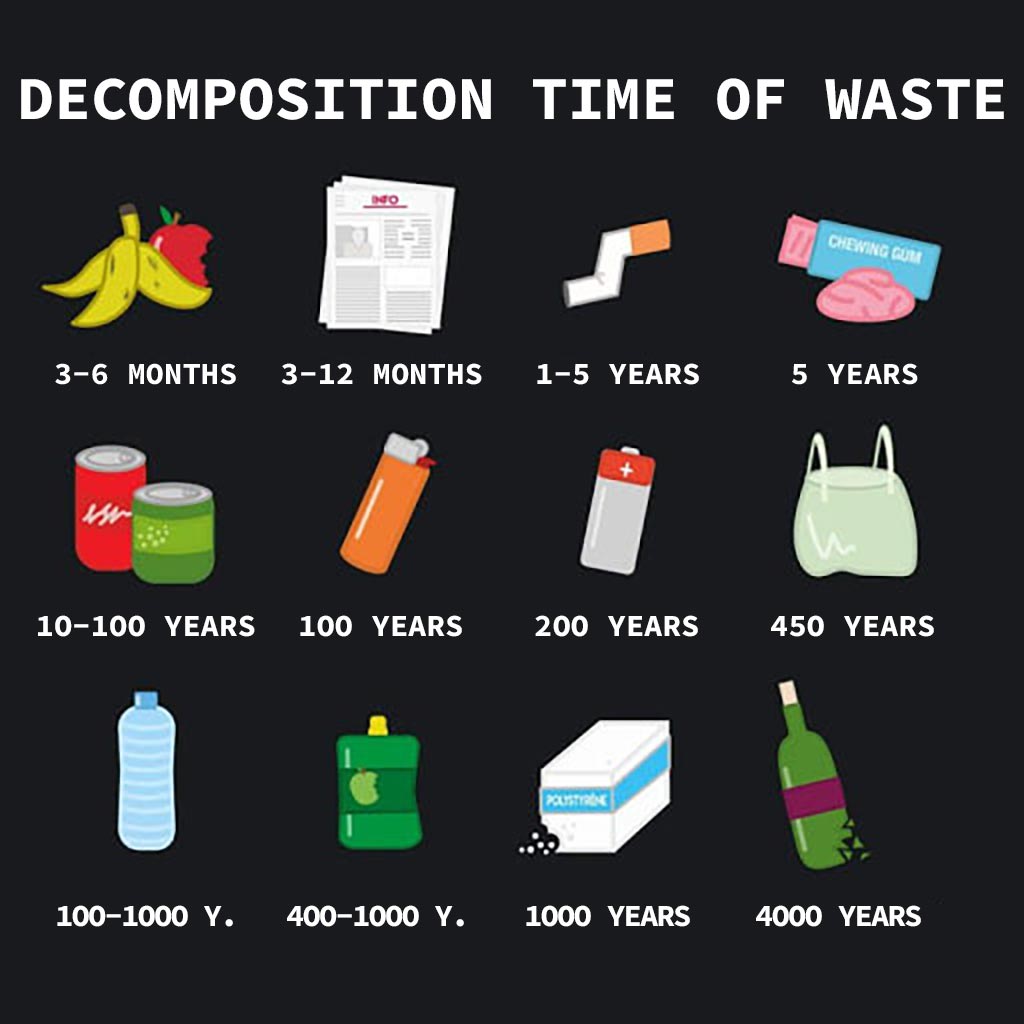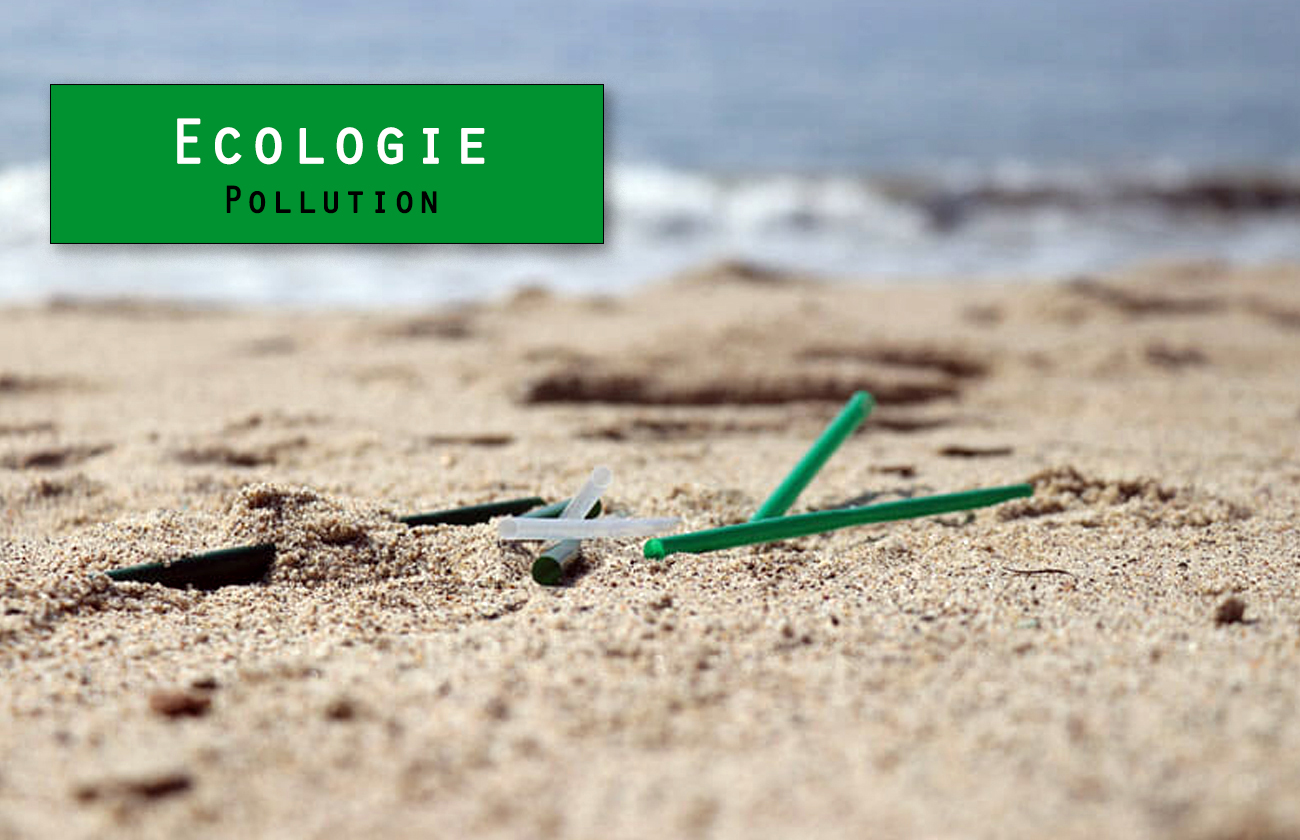WHY IS IT IMPORTANT TO SORT YOUR WASTE?
You have surely noticed those bins in different colors along the roads and in cities and villages. They are put in place to facilitate the processing of household waste. You might find it hard to believe, but in France, each inhabitant produces more than 350 kg of waste per year (source: Ademe), which is the weight of a horse! It is important to sort our waste because, as they do not decompose at the same speed, this allows them to be recycled: thus, paper can for example be transformed into insulating material in house construction, plastic can become a fleece garment, and glass can be turned back into jars or bottles.
DECOMPOSITION TIME OF FOOD WASTE
Food waste such as banana peels and apple cores take 3 to 6 months to decompose.
However, this type of food waste can serve as compost for ecological and useful decomposition, hence the usefulness of setting up public composts to encourage good action.
DECOMPOSITION TIME OF PAPER WASTE
While paper waste such as newspapers takes 3 to 12 months to decompose. In 2017, the recovery rate of paper and cardboard was 72.5% in Europe.
DECOMPOSITION TIME OF CIGARETTE BUTTS
For cigarette butts, it takes between 1 and 5 years for them to decompose. If the majority of butts end up on the ground, and the rest largely incinerated, be aware that technological advances have over time made it possible to separate the organic materials and filters to recycle them to be then composted and reused in various productions, the number of actors in this field is starting to multiply.
DECOMPOSITION TIME OF CHEWING GUM
Chewing gum takes 5 years to decompose. You might be surprised, but chewing gum is now recyclable! The initiative started in London and has not yet arrived in our regions, by placing specific bins for chewing gums in some cities, Gumdrop was able to collect them in large quantities and use them for the creation of recycled plastic products including chewing gum.
DECOMPOSITION TIME OF CANS AND TINS
Following, cans and tins take between 10 and 100 years to decompose. Their materials are 100% recyclable and infinitely, currently in France, they are recycled at a rate of 67%.
DECOMPOSITION DURATION OF LIGHTERS
As for the lighter, it will take 100 years to decompose, while a match will take 6 months to decompose. The lighter is a real problem in terms of ecology since it is not recyclable because it has to meet multiple safety criteria that do not allow it. Many brands sell rechargeable lighters which are currently the best solution to replace disposable lighters.
DECOMPOSITION DURATION OF BATTERIES
The battery decomposes over 200 years. In the context of recycling, up to 80% of the metals present in the battery can be extracted and reused. There are many collection points for recycling batteries, especially in hypermarkets where they are bought, however, in 2017, the collection rate of batteries was 45.4%, which is very low.

DECOMPOSITION DURATION OF PLASTIC BAGS
The decomposition of plastic bags takes on average 450 years. The plastic bag is a real problem, with more than 8 billion currently in nature within the European Union, and it is also the main killer of marine animals.
There are few, if any, solutions for recycling it, which is one of the main reasons why the single-use plastic bag has been banned from sale.
However, new plastic bags can be used in compost, but their degradation remains very slow since 90% of this degradation occurs within a year.
DECOMPOSITION TIME OF PLASTIC BOTTLES
Just as problematic as the plastic bag, the plastic bottle takes between 100 and 1000 years to decompose.
The plastic bottle is still problematic in terms of recycling than the plastic bag since 60% of plastic bottles were recycled in 2017.
DECOMPOSITION DURATION OF POLYSTYRENE
Polystyrene takes 1000 years to decompose, and unfortunately, it is not, or very little, recycled because it is composed of 98% gas, leaving only 2% of material that can be valorized.
THE DECOMPOSITION OF GLASS
Finally, glass takes the longest to decompose, requiring on average 4000 years to do so. Although glass takes the longest to decompose, it is still far less problematic than plastic, especially plastic bags, because 76.1% of glass was recycled in France in 2016, and this rate continues to increase.
Moreover, it is not necessary for glass bottles to be transformed again since they can be simply cleaned and reused.





